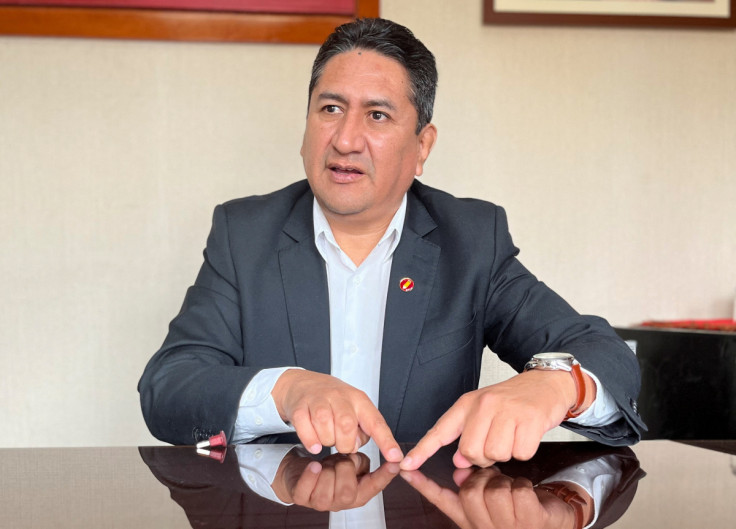Peru Marxist Party Is Still A Barrier To Impeachment Attempts, Leader Says

Vladimir Cerron, the head of the far-left party that ushered Peruvian President Pedro Castillo into power last year, told Reuters on Tuesday that his congressional bloc is still committed to staving off impeachment attempts against the embattled leader.
Castillo won the election by a razor-thin margin last year, spooking investors on the campaign trail with a radical plan written by Cerron, the head of the Marxist-Leninist Peru Libre party. The plan included rewriting the constitution and nationalizing key industries. Peru is the world's second-largest copper producer.
But once in office, Castillo has kept the economy under moderate hands and said he will not change Peru's market-friendly rules, angering Cerron who demanded Castillo's resignation from the party, which Castillo agreed to. However, Cerron still supports Castillo remaining in the presidency.
"What is missing for a (successful) impeachment are a few votes that Peru Libre could have provided at any moment," Cerron, a neurosurgeon trained in Cuba, told Reuters in a rare interview at his party headquarters.
"And that is definitely not our intention...Peru Libre remains an insurmountable barrier so far."
Peru Libre controls 16 of 130 seats in Peru's unicameral Congress. Ousting Castillo requires 87 votes, but the two impeachment trials so far yielded 76 and 55 votes respectively.
Cerron's remarks will give Castillo breathing room at a time when some lawmakers in the opposition-led Congress are discussing launching a third impeachment attempt, although they have acknowledged they do not currently have enough votes.
Peruvian politics are notoriously volatile, cycling through five presidents since 2016 and witnessing six impeachment trials in the same period.
Cerron said he would like Castillo to finish his term in 2026, which would make him the first elected president in a decade to do so, after Ollanta Humala who took office in 2011.
Castillo is also in a weak spot, besieged by six criminal investigations, among them whether he has used the presidency to benefit his family and whether he has obstructed justice to protect key allies. His sister-in-law has been jailed, while a former minister remains on the run.
Castillo has previously denied any wrongdoing.
NEW CONSTITUTION EFFORTS STALLED
Cerron said Peru Libre is not currently seeking a constitutional assembly to redraft the Constitution.
While writing a new magna carta remains a key party objective, he acknowledged currently there is no legal way to achieve that without persuading a majority of Congress, which remains split among conservative parties that are opposed to a rewrite.
"The doors have been closed not just for Peru Libre but for other social organizations that were supporting (a new constitution,)" Cerron said.
While analysts have said a constitutional rewrite is unlikely, Cerron's comments are the strongest so far acknowledging that improbable scenario.
He added he has not spoken with Castillo in a month and that Castillo's administration has abandoned virtually all of Peru Libre's objectives.
Castillo "is a pragmatic man," Cerron said. "He's a president who is facing the day-to-day without having an agenda for the future."
© Copyright Thomson Reuters 2024. All rights reserved.











